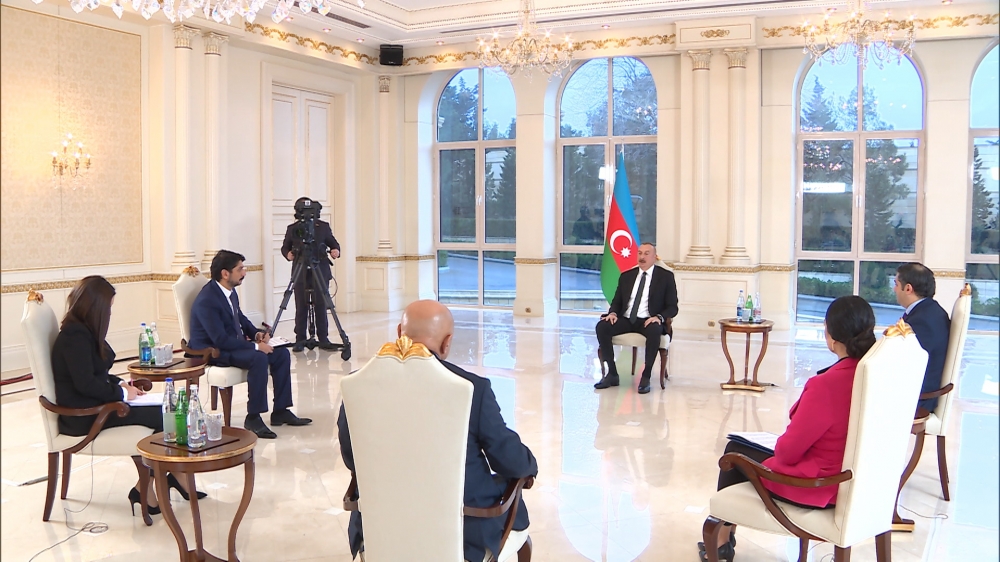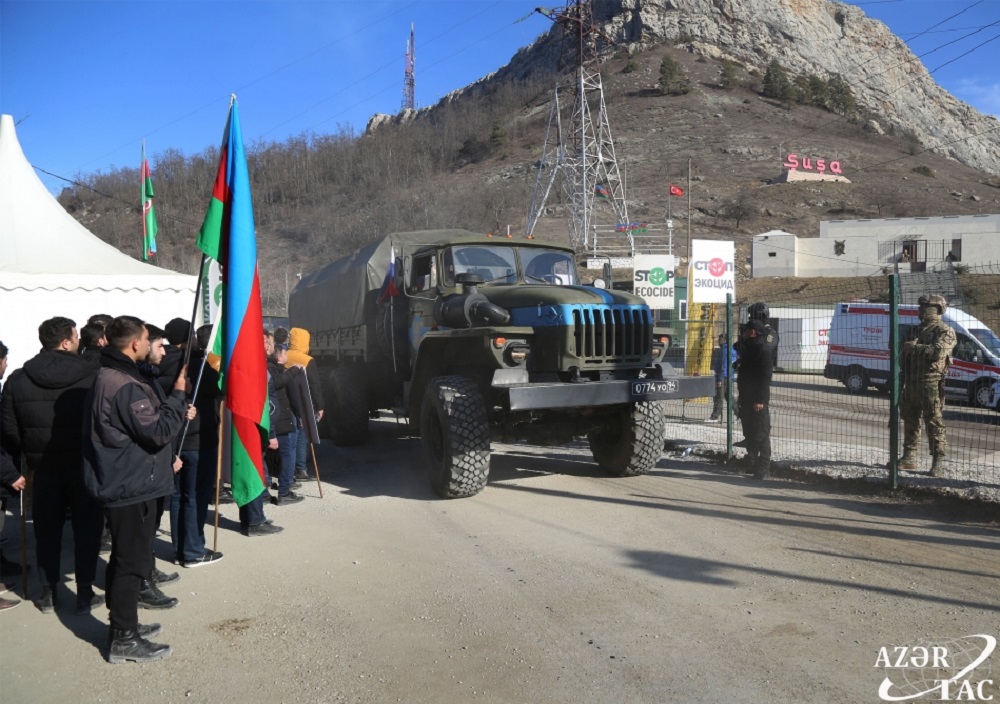What do the 44-day war and the situation on the Lachin corridor have in common?
44-day war and the Lachin corridor
It has been exactly a month since the protest by Azerbaijani activists on the Lachin corridor began, the only road connecting Khankendi (Stepanakert) with Armenia. So far none of the protesters’ demands has been met. The South Caucasus Analytical Center drew parallels between the second Karabakh war and the protest, examining commonalities between the 44-day war and the situation in the Lachin corridor.
- “If Vardanyan were Russian puppet, the road would be open” – Thomas de Waal
- Yerevan and Baku far from agreement: latest statements by Pashinyan and Aliyev
- Simplified travel for Georgians and Armenians between the two countries
Experts from the South Caucasus Analytical Center note that the 44-day war of 2020 and the “standstill” on the Lachin road have many common features.
In their opinion, one can enumerate such factors as the balance of power between the parties, the “destructive policy” of Armenia and France, the activity of the Armenian diaspora, the reaction of the international community, and demands made by Azerbaijan.
Balance of power
The think tank recalled that “after the end of the second Karabakh war, Armenian Defense Minister David Tonoyan drew attention to the great disparity of strength between the two nations.”
“We note that a few months before the start of the war, the Chief of the General Staff of Armenia, O. Gasparyan, told Nikol Pashinyan about the country’s unpreparedness for war,” the analysts added.
It is also mentioned that according to the Global firepower index for 2023, the armed forces of Azerbaijan take 57th place among 145 armies of the world, while the Armenian Armed Forces come in 94th. “In 2022, Azerbaijan was ranked 63rd in this ranking, which means that over time the balance of power between the two countries has changed even more,” the think tank said.
“The destructive policy of Armenia”
“During the 44-day war, Pashinyan called on the world states to recognize Karabakh on the basis of separating this part of the country from Azerbaijan and “reunification for the sake of salvation.”
Currently, Pashinyan declares the recognition of the territorial integrity of Azerbaijan along with Karabakh, but at the same time presents the action on the Lachin road as an attempt at genocide against the Karabakh Armenians.
The purpose of such speeches by the Prime Minister of Armenia is to impose on the world community a narrative about the impossibility of Armenians living under the jurisdiction of Baku and thereby separating Karabakh from Azerbaijan,” experts said.
“Destructive activities of France”
They also analyzed French President Emmanuel Macron’s actions in 2020 and now:
“During the second Karabakh war, Macron accused Baku and Ankara of involving Syrian mercenaries in the battles and tried to pass a resolution against Azerbaijan in the UN Security Council.
At the end of 2022, both chambers of the French Parliament passed resolutions “blatantly far from reality, reflecting false and slanderous statements that are openly provocative.”
Meanwhile, Macron himself made “offensive, unacceptable, deceitful and provocative” statements, and again tried to push through the UN Security Council a biased resolution against Azerbaijan.”
The reaction of the international community
In the first half of the 44-day war, the reaction of the international community was at first quite active, but then slowed down:
“The Brookings Institution’s only article on the war came out on September 30, 2020. An article condemning Baku and Ankara for recruiting mercenaries from abroad in the Belfer Center was published on 8 October. On October 16, Chatham House stated that it sees the secession of Karabakh as the only way to prevent civilian casualties. Human Rights reports full of criticism came out on September 30 and October 23.
Politicians and journalists supporting Armenia both two years ago and now come out with anti-Azerbaijani tweets and statements.
The same trend continues today. In the first days of the protest on the Lachin road there was strong pressure on Azerbaijan, but now the situation has stabilized.”
Baku’s demands
The analysts recalled that Baku’s main demand during military operations in the fall of 2020 was to provide Yerevan with a schedule for the withdrawal of Armenian troops from the territory of Azerbaijan:
“Now Baku’s demand is to stop the plundering of the country’s natural resources and establish a checkpoint on the Lachin road to use it for exclusively humanitarian purposes.
The war ended on the same day that Yerevan provided Baku with a schedule for the withdrawal of its armed forces from the regions of Azerbaijan. And the protest on the Lachin road will stop with the creation of a control post along the corridor.”
Prospects
“Until the last day of the 44-day war, Armenia demonstrated a destructive position. Yerevan did not want to agree to Baku’s demands. But as the war went on, Azerbaijan’s demands grew.
And now, as long as Armenia resists the just demands of Azerbaijan, this list will expand and the pressure will grow,” the analysts concluded.
Follow us – Twitter | Facebook | Instagram
44-day war and the Lachin corridor




















